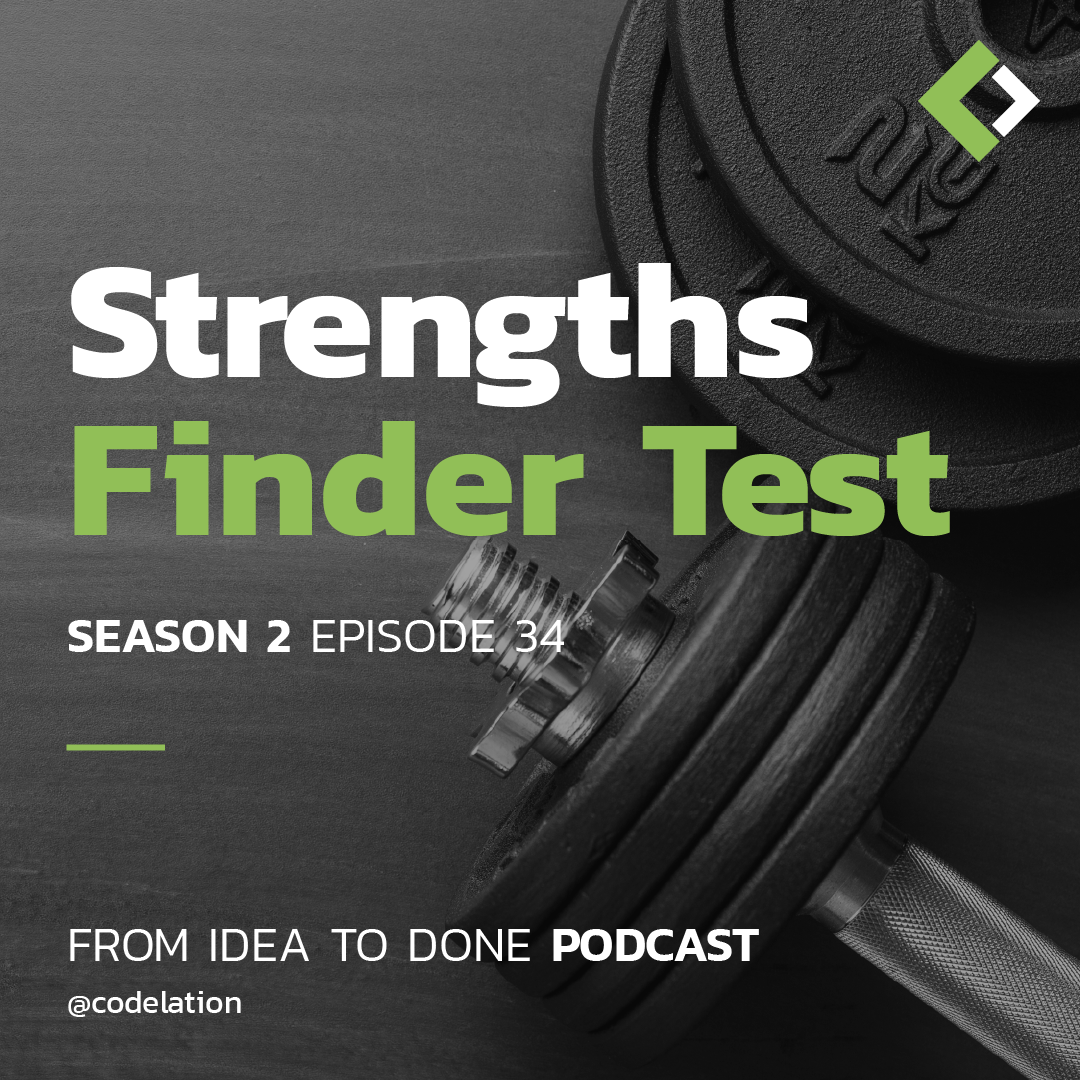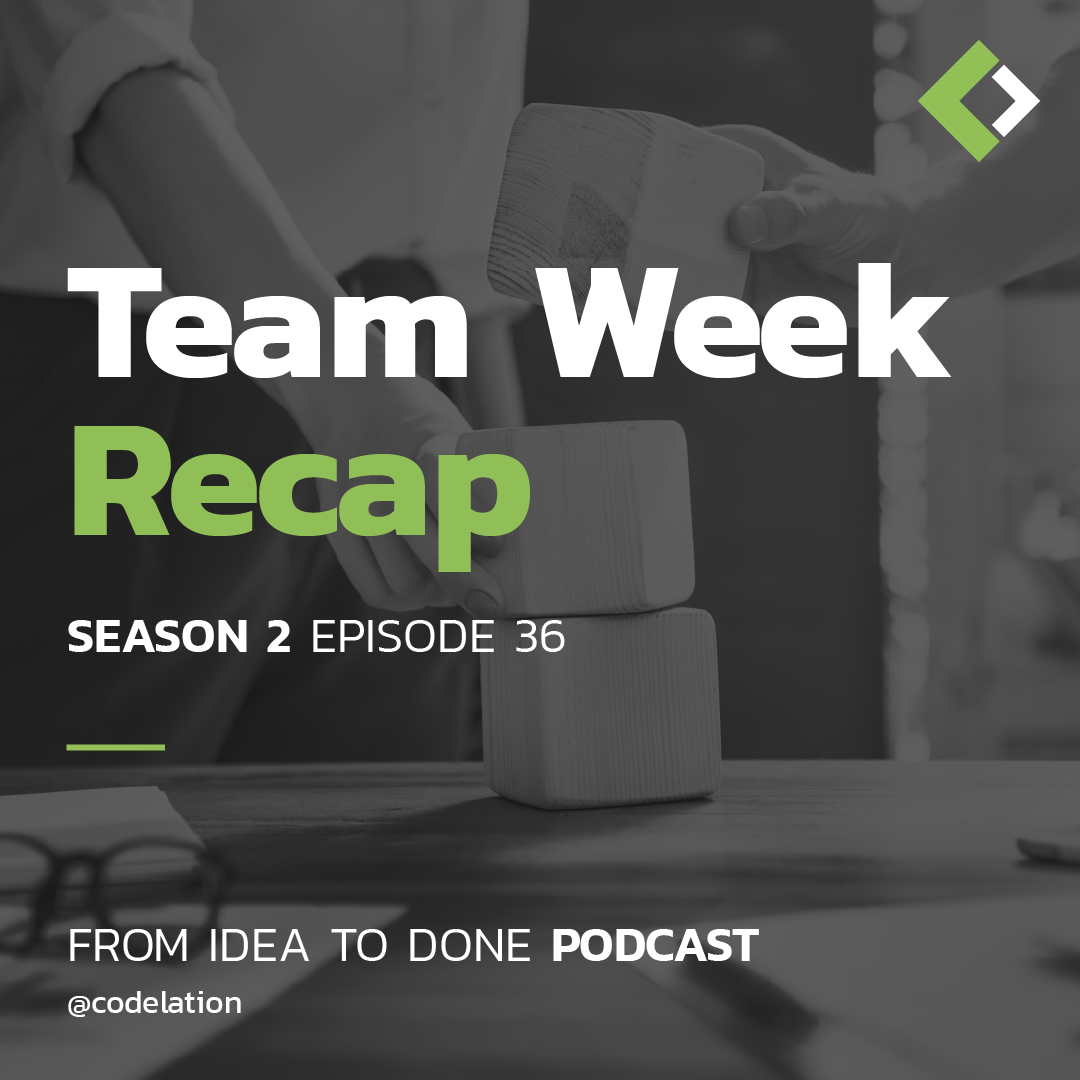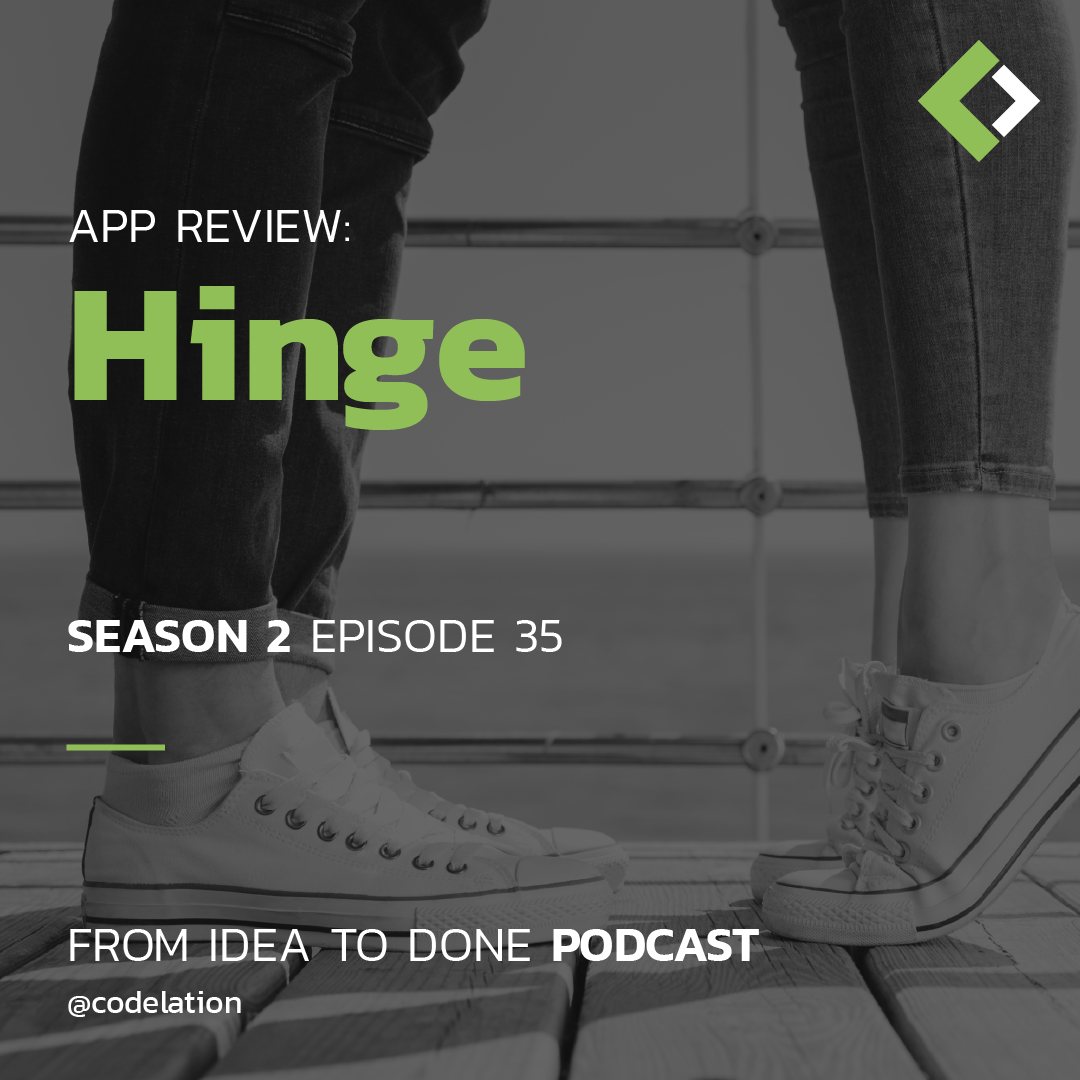App Review: Hinge

Strengths Finder Test
August 25, 2020
Team Week Recap
September 8, 2020VO: Get ready for your semi-regular dose of random ideas from the guys at Codelation. We like to talk about big ideas companies that are winning, and those that aren't along with current events in our crazy world of software startups. So come along with Erick and Josh, who challenge you to think big, start small and turn your ideas into something on this episode of, from idea to done.
Josh: Hey everyone, I'm Josh
Erick: And I'm Erick and today's idea is, you know, should you build a clone of an app? Uh, specifically my review of the, and only my review of the dating app hinge. So we'll get into a little backstory on this. Um, a couple of weeks ago, a company approached us about building a new dating app and they wanted to build something similar to an app called hinge. And they, they asked us if we were familiar with it. And, and you being married for 12 years, happily married for 12 years quickly said no. And me being single that no, but, uh, we went about researching this app in a little different way. Josh, how did you research?
Josh: Well, I started off by foolishly, uh, told my wife over a text message that I wouldn't be, uh, downloading a dating app as research for a client. So that was a mistake. Number one, uh, it wasn't the smartest thing I've ever done. Um, but then I started looking at their site, um, and their, just their app in the app store. So what did you find then? Uh, really interesting that hinge has a website called hinge labs.com and the entire site is dedicated to the psychology and the data behind getting someone to delete the app. Um, it w it reminded me of the, uh, have you heard of new the, the weight loss app?
Erick: We've talked about it a little bit.
Josh: It reminds me a lot of that. There's a lot of psychology behind it. There's a lot of automations and it just really dive into the data, which is kind of cool. Eric, how'd you go about researching the app?
Erick: Well I just downloaded it so I didn't get into the other stuff.
Josh: What else what'd you find about it?
Erick: You know, It was kinda different and I liked that you couldn't see everyone all at once kind of like other dating apps. And one thing I like about this, it's, it's almost overwhelming and it's not, when you're just looking at one person, I, I'm only looking for one, I don't need to look at a hundred people and it's kind of overwhelming and it it's weird having conversations with a few different people at once. And it was, that was just kind of weird, but I did like that. It just was kind of a one-on-one, uh, process.
Josh: So one-on-one process. What else did you like about, about the app?
Erick: You know, compared to kind of other ones, they built in some kind of icebreakers with it. And so I like to travel and I would have a picture of me on my latest travel adventure. And I would say where guests were, this picture is taken from, and the, they had kind of like random questions you would say to like, give me your random advice on blank. And then I, as a user would fill that out. And I said, give me advice, what national park or state park I should go because I love road trips. And it kind of, it helps start a conversation much better than any other dating apps I've tried.
Josh: You know, when we looked at it on your phone, not my phone, definitely on my phone. Um, I found it interesting that it wasn't just a, oh, that person is hot or cute sort of an angle. You get to know someone. And then also, like there's a part in the app too, where we didn't know if you clicked out of someone's profile. Like, would you get to see them again? Or if you don't connect with them, like, do they go away forever? Do you get the chance to find them again?
Erick: I don't know. I've interacted with a few people on it since downloading it. And I'm having conversations with two right now and that's enough. That's more than I need or want. And it's, it's plenty. And so
Speaker 4: One is enough.
Erick: One is enough I couldn't even imagine dating two. It just sounds like more drama than I would ever need. And so, yeah, my, my kind of final thought with this is no one really cares where or how they meet their significant other. And after some research, I liked the fact that they had icebreakers built into it. And there's a lot more, there's a lot more psychology and backend stuff kind of in the that I won't even think about. But did you have any thoughts kind of finishing up here on building or cloning a company with an existing app?
Josh: You know, we've cloned, uh, we've done a few of the clone projects or type of projects and they never seem to go that well, because there's always the, just do it this way. Oh. But it's, but by the way, Eric, it's different. Well, how is it different? Well, let's just clone this one like this, and now you've got a clone of something which is really hard to take to the market because I think in our research hinge had $21 million of funding. And there you're saying they're running advertising on Hulu to you. So
Erick: People in a demographic of Fargo, North Dakota.
Josh: So, you know, the advice I'd have is don't try to clone something because you think it's a good idea. Start with the problem that the target audience or target market is having, and then try to solve that problem. And we can use inspiration from Airbnb. We can use an inspiration from hinge. We can use inspiration from Amazon, but if we start off trying to clone them or build them, they're light years ahead of where we're at. So why don't we try to address the problem with in front of us, because we're going to ultimately end up with a better product.
Erick: If you're not going to do something drastic, not drastic, but different enough to solve a problem. I, I won't even do it. And so, yeah. Thank you for listening. We hope you found this helpful. And if you know a startup that could use our random advice and thoughts, then send them over to correlation.com to hear our next podcast.
Sign up to receive email updates
Enter your name and email address below and I'll send you periodic updates about the podcast.
